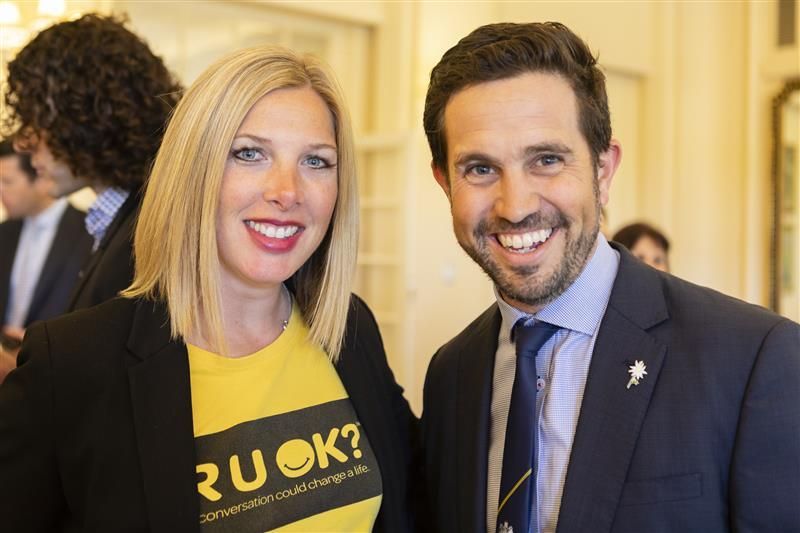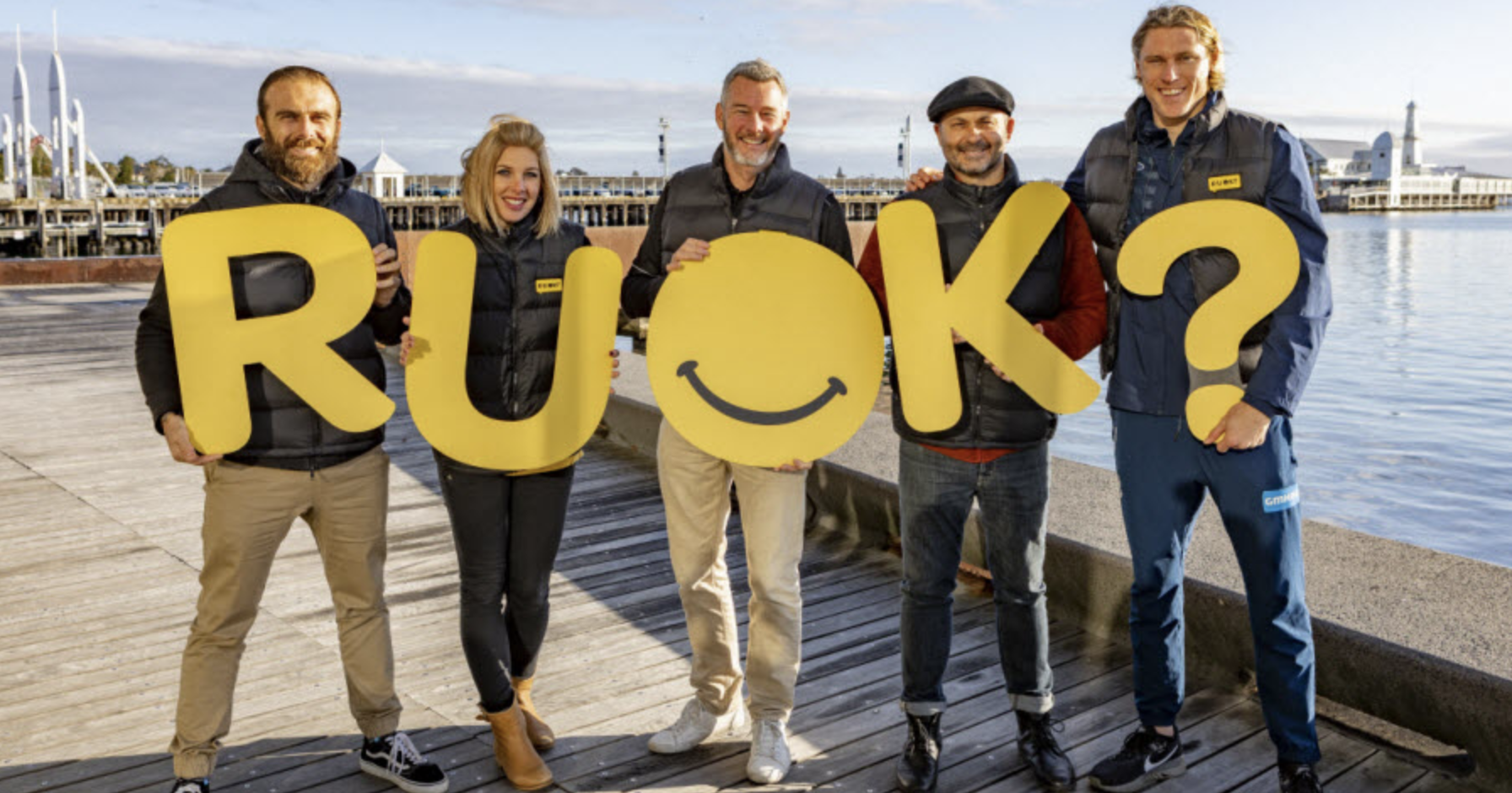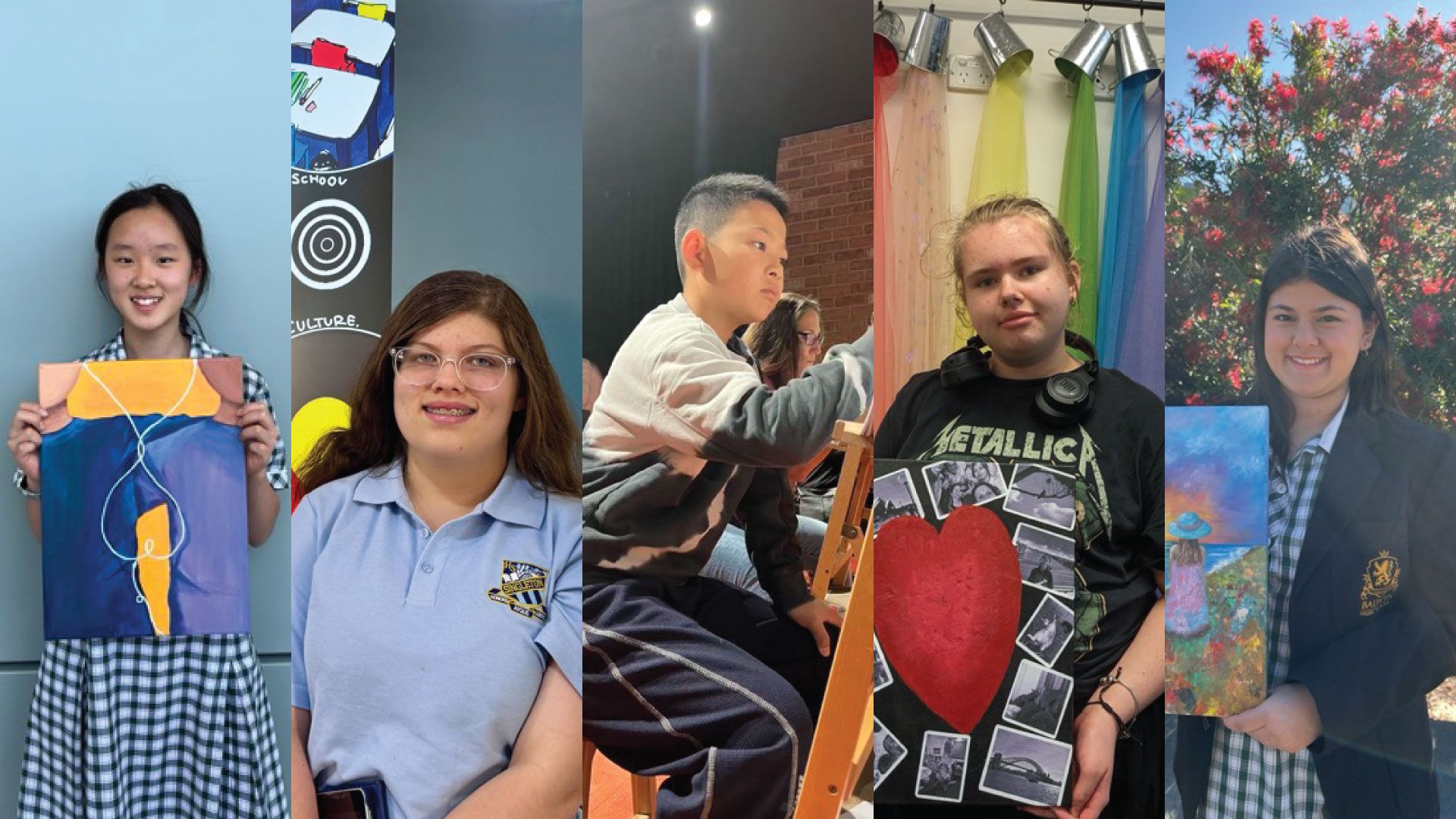Let's talk about mental health
It's mental health month and we're encouraging more open conversations about our mental health
October is Mental Health Month and a good time for all of us to check in on our own mental health and wellbeing. It is also a good chance to learn how to look out for the people around you who might be struggling with their mental health and how that may be impacting them.
Mental health challenges don’t discriminate – they can affect anyone at any time. These challenges are something R U OK? Ambassador Commando Steve, has faced and been open about.
“Even to this day I’m dealing with my own issues,” says Commando Steve. “Life is tough — we all have our own demons and I’m no different to any other human being. Pain, suffering and fear is real, but it’s not unique. You might think someone has the perfect life, but do they? I deal with the same struggles as anybody else.”
So, what can you do if you are concerned someone you know is struggling with their mental health or finding life tough?
It all starts with a conversation. By asking “Are you OK?” and listening we can show our mates they don’t need to tackle their problems alone and reassure them that help is available.
“I’m willing to put my hand up and say, sometimes my life is hard, really hard and sometimes I don’t know which way is up — can somebody give me a hand?,’” Steve said.
“None of us have got it made and being honest with others can help lift you up a bit, give you hope and that honest conversation with someone can often be the difference between life and death for many people.”
Even if they’re not ready to talk, your concern shows them you’re open to discussing their mental health struggles – or any problems they’re going through – whenever they’re ready.
Here are some simple steps to help you have that conversation in a safe and caring way.
- Approach the conversation in a casual and informal manner and tone
- Make sure you are having the conversation in a quiet place, free from interruptions and where you cannot be overheard. The person needs to feel comfortable to talk.
- Start off with something like “I just want to check in with you and see how you are travelling? I have noticed a change in you in the last couple of weeks in that you don’t seem to be quite yourself. R U OK?
- Assume the role of the listener and listen without interruption or judgement
- Remember it’s not your role to fix the problem. However, it is important that you guide them towards a solution or further assistance. Gently encourage action to link the person in with some help such as a manager, trusted family member, General Practitioner or Counsellor
- After the chat, check in with them again. Keep up that connection and help them think about the things they find joy in. An open ear can be life changing and lets them know you’re there for them, going forward.
The conversations that really change lives are the ones where the person struggling feels they’re not being judged and know they’re not alone with their burden -whatever that may be. As Commando Steve says, “The one thing everyone can give is their time. Just listening and allowing that person to talk. Don’t worry about ‘fixing’ them, you may not have the answers, but just be a human being with another human being.”
So this mental health month, let’s take Commando Steve’s advice and start more open and honest conversations with anyone we’re worried about.
Find more conversation tips on the How to Ask page.
If you or a loved one need immediate support, Lifeline are available 24/7 on 13 11 14 and other supports can be found here.






















